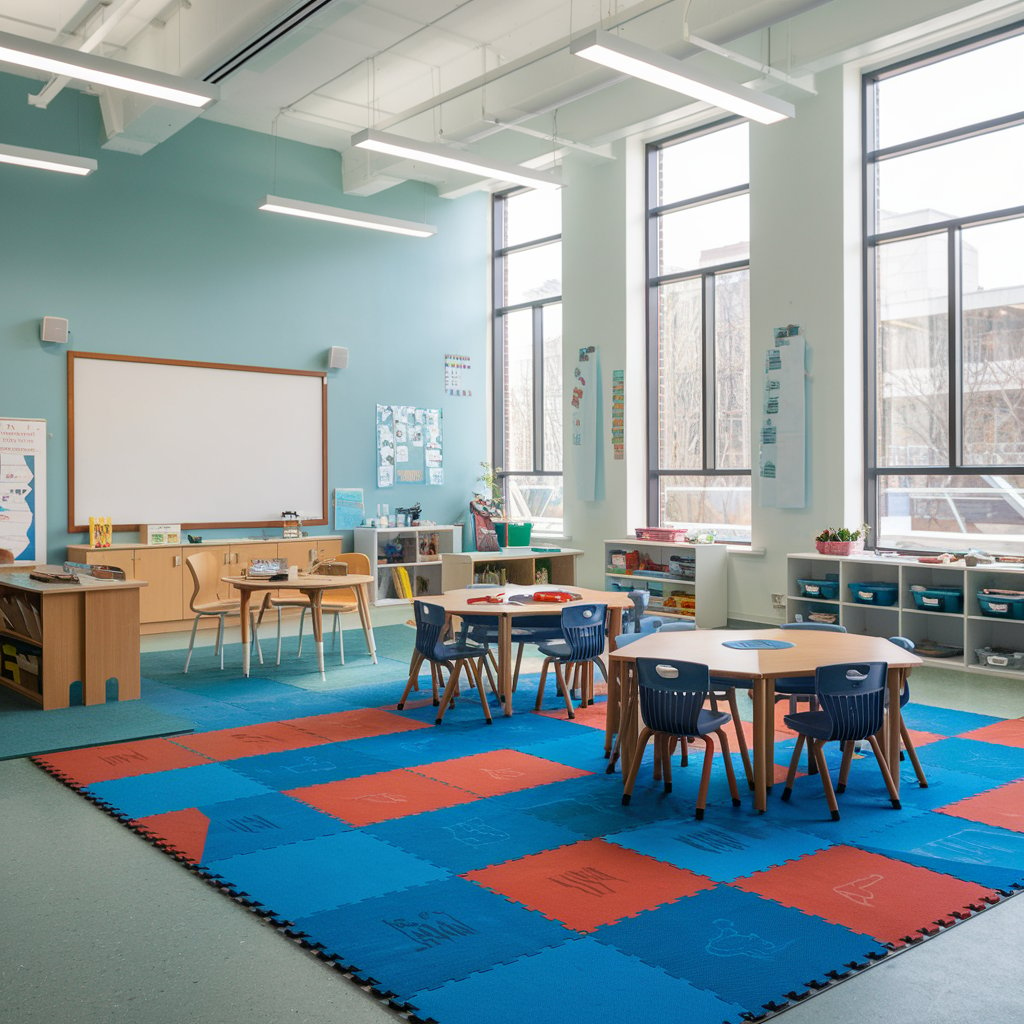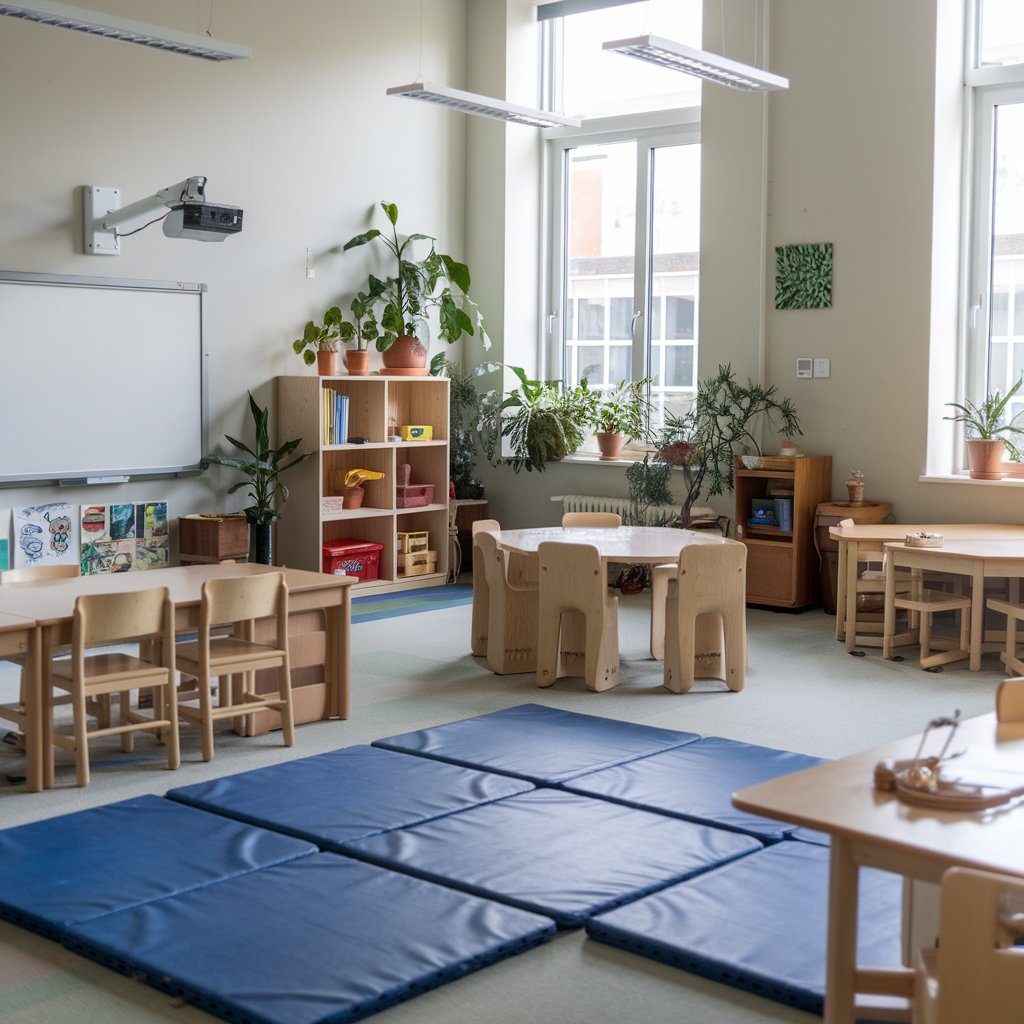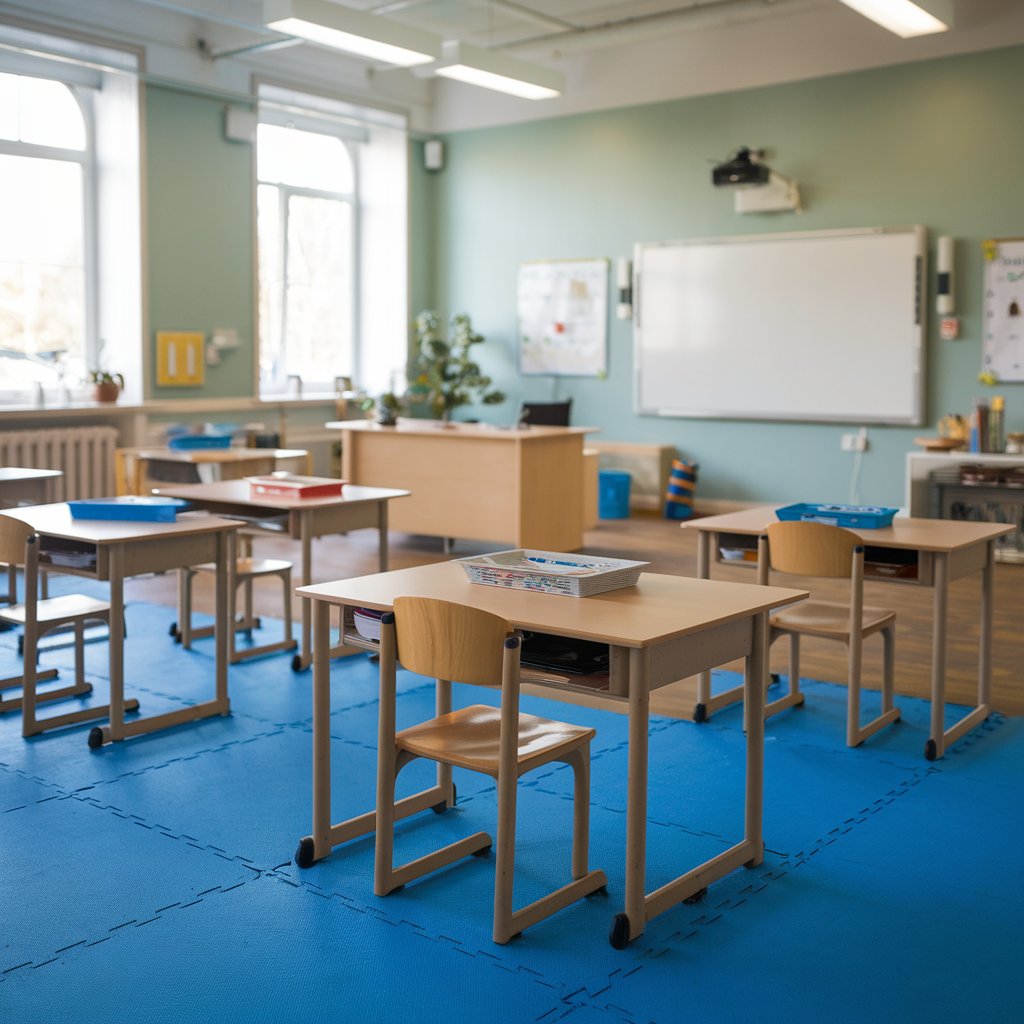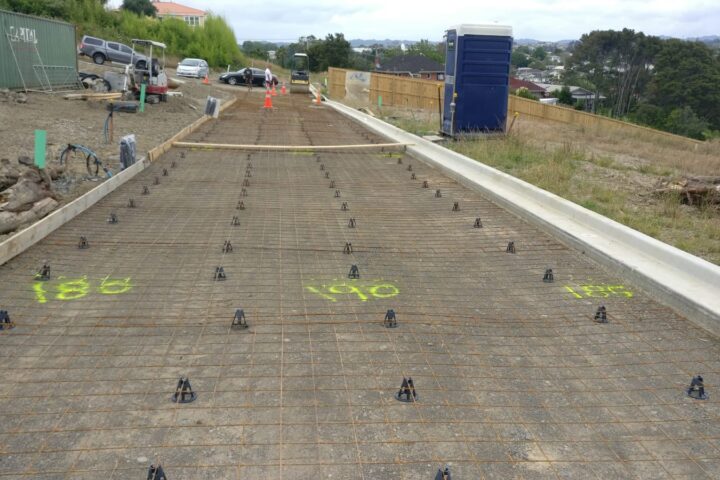Introduction
The concept of a “zet up mat classroom” is revolutionizing the way educators and students approach learning spaces. By incorporating eco-friendly materials, modular designs, and student-centric layouts, these classrooms foster creativity, collaboration, and sustainability. But what exactly is a zet up mat classroom, and how does it redefine the educational experience? Let’s dive into its unique features, benefits, and implementation strategies.
Table of Contents
What is a Zet Up Mat Classroom?
A zet up mat classroom is a thoughtfully designed learning environment that utilizes modular, mat-based setups to create flexible and eco-friendly spaces. These classrooms focus on adaptability, allowing teachers to customize layouts to suit various teaching methods and learning activities. The use of eco-conscious materials ensures sustainability while promoting a healthier atmosphere for students.
Why Choose Zet Up Mat Classrooms?
The zet up mat classroom is gaining popularity due to its numerous advantages. Here are some compelling reasons to consider this approach:
- Eco-Friendly Design: These classrooms prioritize the use of mats made from recycled or biodegradable materials, reducing the environmental footprint.
- Flexibility: The modular nature allows easy reconfiguration, catering to diverse teaching styles and collaborative learning activities.
- Enhanced Comfort: Soft mats provide ergonomic benefits, ensuring a comfortable learning environment for students of all ages.
- Cost-Effective: Reusable and durable materials help schools save on long-term maintenance and redesign expenses.

Features of a Zet Up Mat Classroom
1. Sustainable Materials
The foundation of a zet up mat classroom lies in its materials. Mats are typically crafted from recycled rubber, organic fibers, or biodegradable polymers, ensuring minimal environmental impact.
2. Modular Layouts
Flexibility is at the core of these classrooms. Teachers can arrange the mats to create open spaces, group seating, or individual workstations, depending on the activity.
3. Vibrant Aesthetics
Bright colors and engaging patterns on the mats stimulate creativity and maintain students’ attention, making learning more enjoyable.
4. Technology Integration
Many zet up mat classrooms are equipped with charging ports, projection screens, and smart boards, blending traditional teaching methods with modern technology.
How to Implement a Zet Up Mat Classroom
Creating a zet up mat classroom involves thoughtful planning and execution. Here’s a step-by-step guide to get started:
Step 1: Assess Your Needs
Understand the requirements of your classroom. Consider the age group, teaching methods, and type of activities when choosing mats and layouts.
Step 2: Choose the Right Mats
Select mats that align with your goals. Look for durable, non-toxic, and eco-friendly options to ensure long-term usability and sustainability.
Step 3: Plan the Layout
Design a layout that supports your teaching style. Opt for configurations that promote collaboration for group activities and focus for individual tasks.
Step 4: Incorporate Storage Solutions
Integrate storage spaces for mats to allow quick and easy reconfiguration without cluttering the classroom.
Step 5: Train Teachers and Students
Ensure that teachers and students understand the benefits of the zet up mat classroom and how to use it effectively for different activities.
Benefits of Zet Up Mat Classrooms
1. Promotes Active Learning
The flexibility of these classrooms encourages students to engage actively in their learning processes, leading to better academic outcomes.
2. Fosters Creativity
Dynamic layouts and vibrant mats create an inspiring environment that nurtures creativity and innovation.
3. Supports Collaboration
Group-friendly configurations make it easier for students to collaborate, improving teamwork and communication skills.
4. Improves Focus
Ergonomic designs reduce physical discomfort, helping students concentrate better on their tasks.
5. Eco-Conscious Impact
By choosing sustainable materials, schools contribute to environmental conservation and educate students about the importance of eco-friendly practices.
Challenges and Solutions
Challenge: Initial Costs
Eco-friendly materials and modular designs may seem expensive initially.
Solution: Focus on long-term benefits such as durability, reduced maintenance, and cost savings over time.
Challenge: Teacher Adaptation
Teachers may face challenges in adapting to the new setup.
Solution: Provide comprehensive training sessions to familiarize them with the layouts and functionalities.
Challenge: Student Resistance
Students may initially find the new setup unfamiliar or distracting.
Solution: Introduce the concept gradually, highlighting its benefits to ease the transition.

Real-Life Examples of Zet Up Mat Classrooms
Several schools worldwide have embraced the zet up mat classroom concept with remarkable success. For instance:
- Eco-Learn Academy, California: This school uses mats made from recycled materials and reports improved student engagement.
- Greenfield Elementary, Canada: Modular layouts have enhanced collaboration among students, particularly in STEM activities.
- Future Minds Academy, Australia: The integration of technology within the zet up mat classroom has transformed traditional teaching methods.
Also read: Drew Pritchard New Wife: An In-Depth Look
Conclusion
The zet up mat classroom is more than just a trend; it’s a transformative approach to education that combines sustainability, flexibility, and innovation. By investing in this concept, schools can create engaging, eco-friendly learning spaces that benefit both students and the environment. Adopting a zet up mat classroom is a step towards a brighter and more sustainable future in education.
Frequently Asked Questions
1. Are zet up mat classrooms suitable for all age groups?
Yes, they can be tailored to suit any age group, from kindergarten to high school, depending on the mats and layout used.
2. How durable are the mats?
High-quality mats are designed to withstand heavy use, lasting for years with proper maintenance.
3. Is it challenging to maintain these classrooms?
Not at all. Most mats are easy to clean and store, making maintenance simple and hassle-free.












